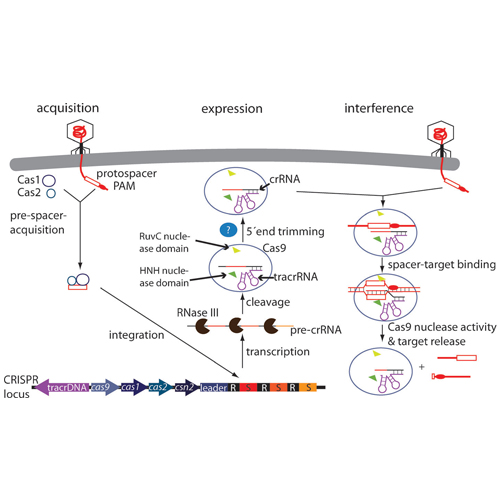CRISPR-Cas: From the Bacterial Adaptive Immune System to a Versatile Tool for Genome Engineering
15-Sep-2015
Angew. Chem. Int. Ed., Volume 54, Issue 46, Pages 13508–13514, DOI: 10.1002/anie.201504741
The field of biology has been revolutionized by the recent advancement of an adaptive bacterial immune system as a universal genome engineering tool. Bacteria and archaea use repetitive genomic elements termed clustered regularly interspaced short palindromic repeats (CRISPR) in combination with an RNA-guided nuclease (CRISPR-associated nuclease: Cas) to target and destroy invading DNA. By choosing the appropriate sequence of the guide RNA, this two-component system can be used to efficiently modify, target, and edit genomic loci of interest in plants, insects, fungi, mammalian cells, and whole organisms. This has opened up new frontiers in genome engineering, including the potential to treat or cure human genetic disorders. Now the potential risks as well as the ethical, social, and legal implications of this powerful new technique move into the limelight.











